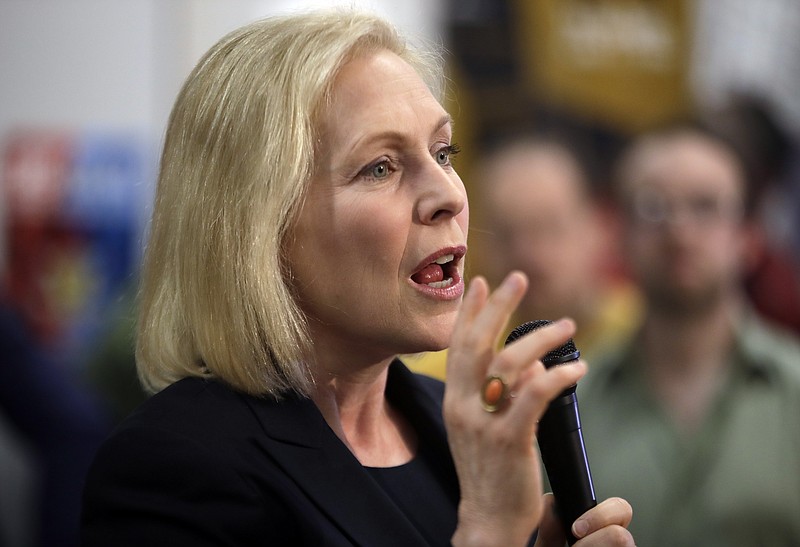Right or horribly wrong, U.S. Sen. Bernie Sanders, I-Vermont, at least puts all of his cards on the table when he says he wants a completely government-run health care system.
Private health care insurance would be a thing of the past, and those involved in the industry would be offered jobs making solar cells. Or something like that.
U.S. Sen. Kirsten Gillibrand, D-New York, has a different idea. She would slowly starve the private health insurance industry, insurer by insurer, policy by policy, drip by drip.
Her idea, she said during a town hall on MSNBC last week, would not be to immediately create some behemoth system but to allow anyone to buy into Medicare at a price they can afford, something like 4 or 5 percent of their income.
More on that vague suggestion later.
"What that does at a minimum is create competition in the system immediately," Gillibrand said. "Those insurers, I don't think they are going to compete."
What she is suggesting is akin to pretending the United States Postal Service doesn't exist and that the federal government wants to get into the package delivery business like UPS, FedEx and their private competitors. Without having to turn a profit, without even having to break even, the federal government says it will start delivering parcels at a much lower, albeit subsidized, rate. Yes, the service is worse, but the prices - especially if the company does lots of shipping - gradually force customers to go with the government-run entity.
UPS, FedEx and their private competitors eventually winnow away. That is Gillibrand's plan for private health insurers.
"So the truth is," she said, "let's have a not-for-profit public option compete for the business. I think over a couple years you're going to transition into single payer."
Gillibrand, asked by host Chris Hayes to clarify that private insurers would continue to exist under her plan, responded with an answer that sounded as evil as any statist Cold War Eastern European dictator.
"I dare them [to exist]," she said.
Then, incredibly, Gillibrand attempted to paint private insurance the way government health care - pegged at a cost of $25 trillion to $35 trillion over 10 years - would have to be run: lean and mean.
"When your goal is to make money for your shareholders," she said, "you are not giving the patient the medicine they need or the extra day in the hospital they need because it doesn't allow you to make enough money. So I don't think they will compete."
Well, Gillibrand had one thing right. When the health care provider is the federal government, which prints its own money, private insurance companies can never "make enough" to compete.
Then there's the matter of individuals paying a price they can afford for Medicare, say 4 or 5 percent, she thought.
It might come at somewhat of a surprise for Gillibrand to learn that, according to a 2017 report by the Commonwealth Fund, more than a quarter of all Medicare beneficiaries already spend 20 percent or more of their household income in Medicare premiums and out-of-pocket health costs. And that included 40 percent of Medicare enrollees who earned below $24,000 a year.
Apparently, the junior New York senator needs to return to her abacus. Even if the program is subsidized by an average of $2.5 trillion to $3.5 trillion a year, 4 or 5 percent of enrollees' income in premiums won't be much to offset the cost of care.
One need only recall the vouchsafed truths uttered at the creation of the Affordable Care Act. Even when he said it, President Barack Obama knew all Americans wouldn't be able to keep their doctor or their insurance plan and knew very well his scheme wouldn't save Americans $2,500 per year.
As former British Prime Minister Margaret Thatcher once presciently remarked, "The problem with socialism is that you eventually run out of other people's money."
But, hey, using Gillibrand's solution, why stop at health care? Why not let the federal government take over the housing industry, the automobile industry, the energy sector?
No, we believe most Americans understand that if you take even a step or so down that path, you have removed the freedom, opportunity and entrepreneurial spirit for which the country has always been known and which have made it free and strong.
